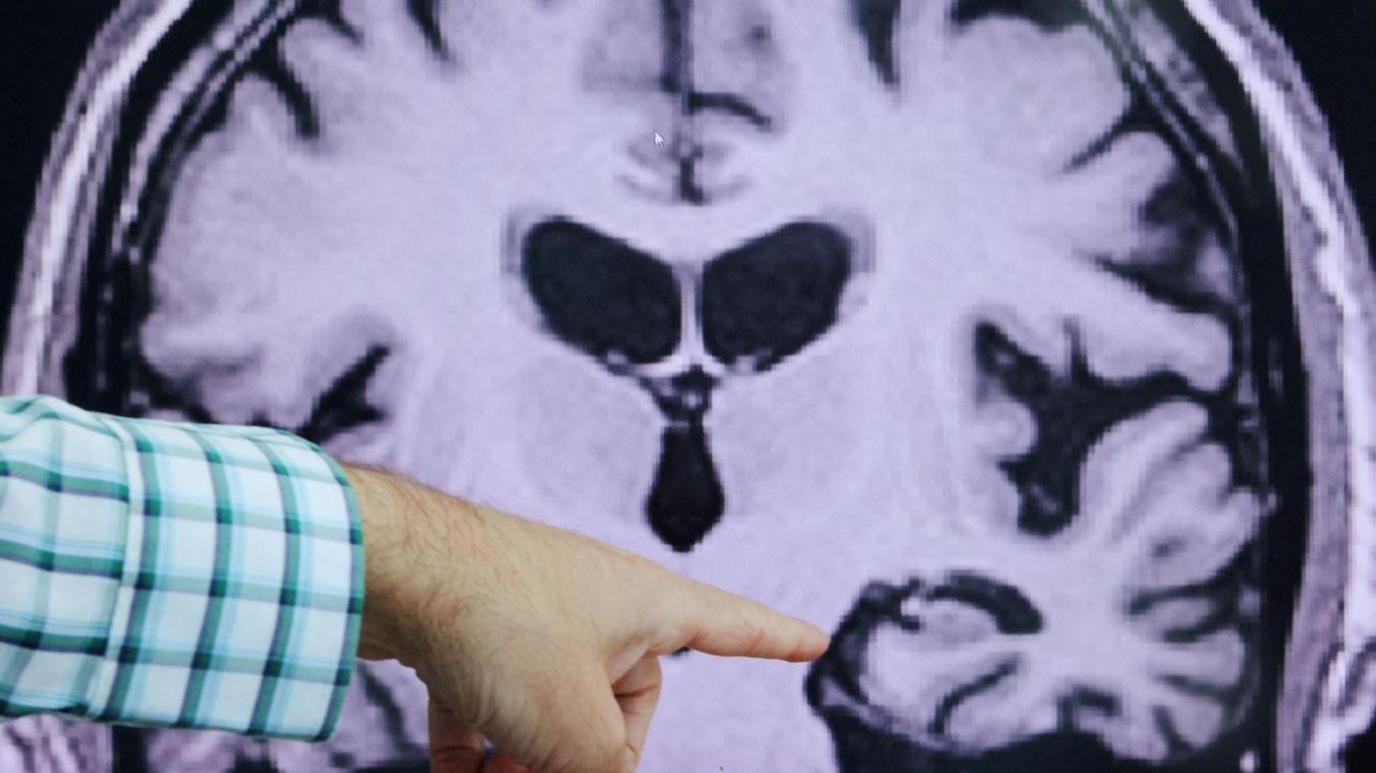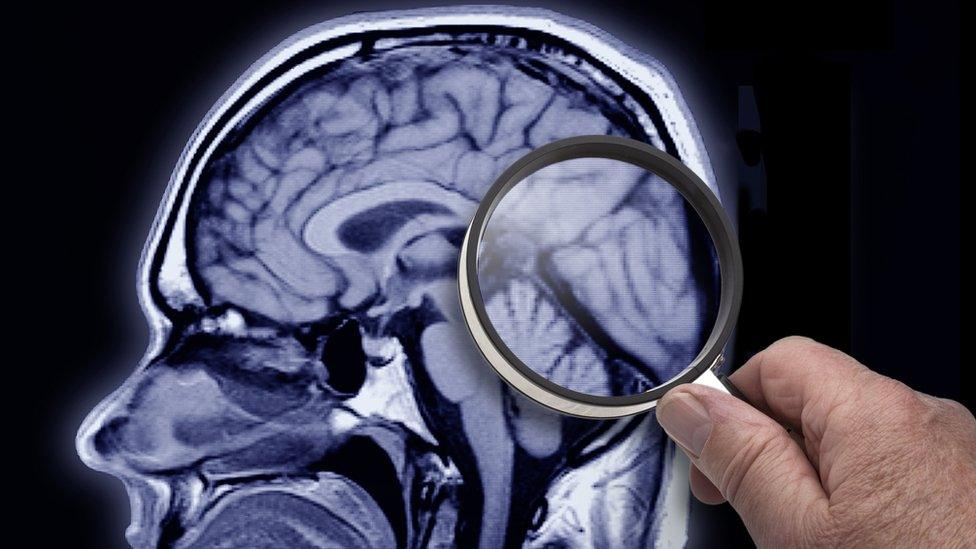Funding to help speed up Alzheimer's research

One of the projects aims to unpick how a certain gene can cause the illness
At a glance
University of Exeter researchers have been given funding to speed up their work on Alzheimer's treatments
The funding worth £370,000 was awarded by Alzheimer's Research UK
One of the projects aims to unpick how a certain gene can cause the illness
- Published
Researchers have been given money to help speed up their work in the fight against Alzheimer's disease.
Alzheimer's Research UK said it awarded a total of £370,000 to three researchers at the University of Exeter who are working on new treatments.
A key project involves unpicking how certain forms of a gene called APOE can cause Alzheimer's.
The charity said people who inherit two copies of the gene are much more likely to develop the disease.
Actor Chris Hemsworth last year took a break from acting after learning he was one of those at heightened risk.
PhD student Luke Weymouth - who will lead the project with Prof Katie Lunnon - said new treatments could be developed.
He said: "Epigenetic changes are reversible, so if we can understand these processes, they can potentially be modified by drugs or even by changing our behaviours."
Prof Wendy Noble also received funding to develop new drugs to target a protein that builds up in the brain as Alzheimer's develops.
The third project by Dr Emma Dempster will study molecular signals that could be key to early detection of the disease.
Follow BBC News South West on Twitter, external, Facebook, external and Instagram, external. Send your story ideas to spotlight@bbc.co.uk, external.
Related topics
- Published30 November 2022

- Published14 July 2019

- Published4 April 2024

- Published10 April 2023

- Published21 November 2022
